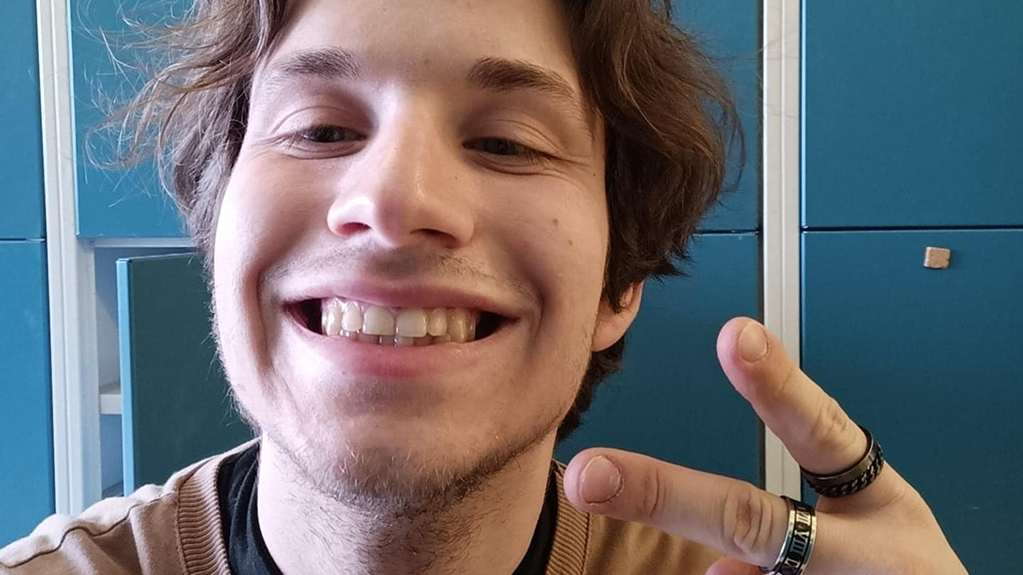In Samegrelo, the search team for 24-year-old Stanislav Koscis, the missing Czech solo hiker on the Tobavarchkhili trail, has already covered the basic route. In the coming days, the most challenging sections, as marked by hikers, will be inspected. The onset of early winter in the alpine region is complicating the search efforts. Relatives acknowledge that the search team is working efficiently and professionally, but they are facing difficulties in communicating with government agencies and are having to rely on alternative means to obtain information.
News
The solo hiker had been in constant contact with his mother, Hana koscis, and his close friend and girlfriend, kateřina zapletalová, while on the route. He shared with them his plans for where he would spend the night and the following days.
"Stanislav arrived in Georgia for the first time on September 27, when he arrived in the city of Batumi. He then sent me a map of his planned route and the location of the place where he was going to spend the night. It was around half past one in the morning, and the afternoon of September 28. around 4:00 p.m., he was already without a signal," said Hana Koskis, Stanislav’s mother, to Georgian News.
Stanislav also sent his last message to his girlfriend, kateřina zapletalová, on September 28 at 3:53 p.m. "His last signal was recorded near Mt. Kvira, and we haven’t heard from him since. He was planning to reach the shelter, sleep there, and then continue from Lake Tobavarchkhili to Lake Lakumurash the next day," kateřina said.
As per available information, on the day Koskis started his hike, he decided to deviate from his original plan, though the specific reason for this change is unclear.
His mother, Hana Koskis, mentioned that Stanislav was known to alter his routes, often opting for less explored areas and enjoying spontaneous adventures. She noted that he had experience in the mountains of the Czech Republic and Austria. "He was accustomed to challenging routes and enjoyed exploring new paths. His spontaneity and adaptability to different conditions in nature were testament to his determination and love for hiking."
The Tobavarchkhili Lakes route has almost no phone reception. When Stanislav did not make contact after the expected time to complete the trail, his mother reported his disappearance to the Ministry of Internal Affairs of Georgia on October 4, providing them with his probable route.
"Once the report was made, they initiated search efforts, although the challenging terrain and severe weather conditions have made the operation difficult. Local rescue teams have been actively involved, and resources such as ground teams, drones, and helicopters (when the weather permits) have been used to assist in the search. The collaboration with various search and rescue teams shows their commitment, despite the tough circumstances," said Hana Koskis.
However, friends of the missing hiker expressed dissatisfaction with the response from Georgian authorities. Zapletalová mentioned that Stanislav’s mother refrained from criticizing the authorities, fearing it might halt the search. She noted that friends and relatives have struggled to get information about the search efforts, often relying on locals for updates.
"I believe your police reacted too late. The rescue team is great, but the police are not. The Czech embassy and police were not provided with information about which routes were searched or where they were looking. That’s why I started reaching out to local people myself. If it weren’t for the locals, we wouldn’t know anything," said kateřina.
Georgian News also contacted the Emergency Situations Management Service, but the agency did not provide any updates to the Georgian media either.
Experienced hiker Alex Tatevosyan from Georgia confirmed that there is a high risk of getting lost on the Tobavarchkhili route. There are no signs along the path from Skuri, and inaccuracies exist in the GPS tracks.
"There are significant issues with markings and signs on the Tobavarchkhili route. The jeep track has some minor errors as it was created a few years ago, and in some places, sections are no longer accessible due to changing terrain.
The area is very challenging, and the ground becomes extremely slippery in bad weather. The route involves crossing rivers multiple times, with fast and cold currents. In bad weather, hikers can seek refuge in shepherds' huts, where food can usually be found. However, the shepherds won’t be there now, as the cold season has started, and they have left," said Tatevosyan.
He also stated that the most difficult section is from Lakumurash to Khaisha, and the search efforts should focus on these areas. "The path to Khaisha is very steep in some sections, requiring you to climb slippery rocks. I wouldn’t recommend carrying a backpack through there, as there is a high risk of falling, especially in bad weather. I would suggest taking the longer route through the Khobisqali gorge instead of the direct Lakumurash-Khaisha path - it adds an extra day but is much safer."
Stanislav Koscis began his travels in July, mostly hitchhiking across different countries. He chose one of the most difficult hiking routes in Georgia, though the season for trekking the Tobavarchkhili trail had already ended. On October 11, the page Trekking in the Caucasus. shared the news of his disappearance on social media. Stanislav had planned to return to the Czech Republic at the end of the month, where his parents, 4-year-old son, and girlfriend were waiting for him.















